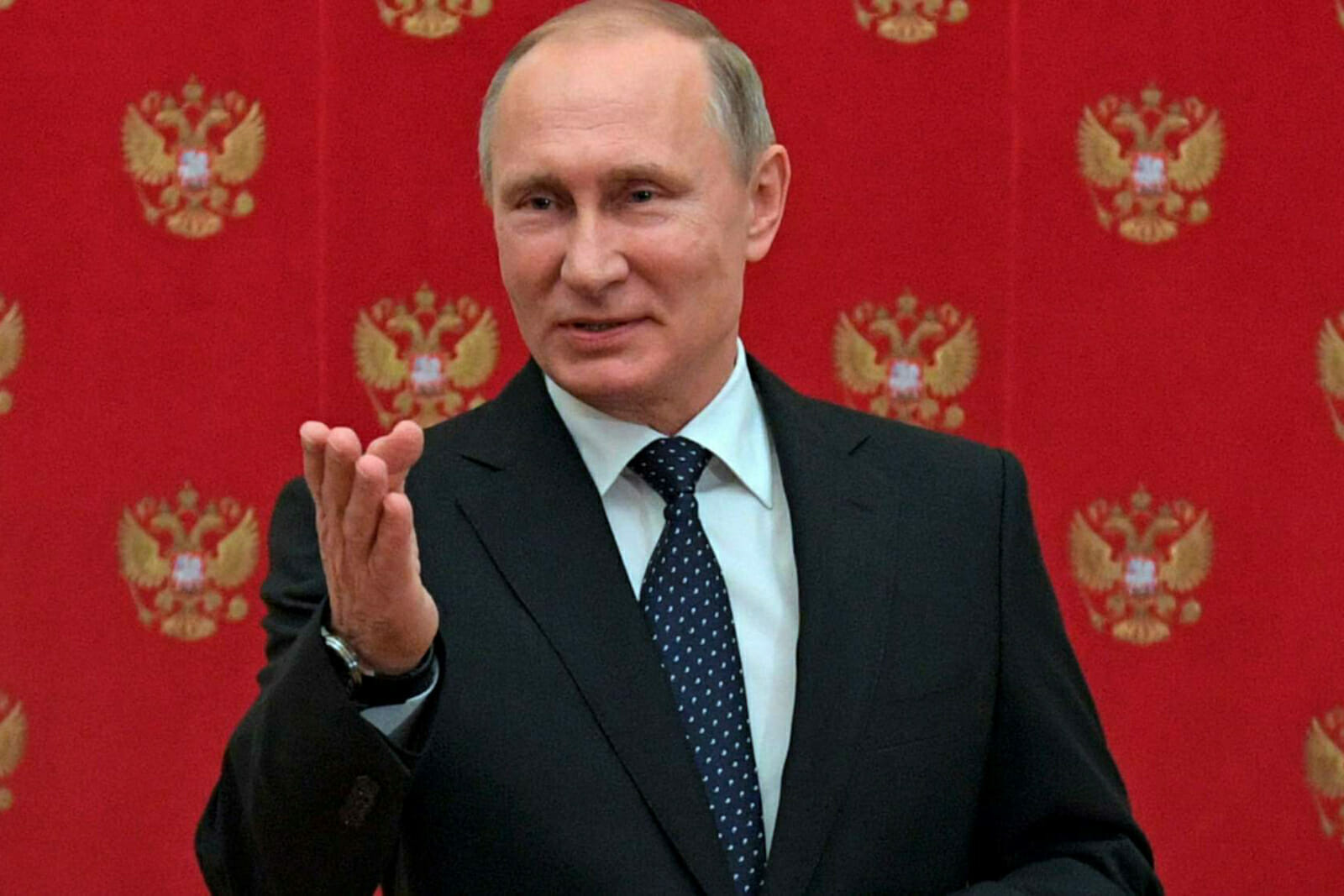
Putin Has Called America’s Bluff. It’s Time to Call His.
It’s become a cliche that “the definition of insanity is doing the same thing over and over again but expecting different results.” Sometimes cliches exist for a reason. With last week’s revelations of Russia’s massive cyber intrusion into U.S. networks, the Kremlin has again called America’s bluff. Putin doesn’t believe the U.S. will raise the costs on Russia for its misbehavior; to this point, he’s right.
The West’s current playbook for responding to Russian aggression has been ineffectual. Since Russia annexed Crimea in 2014, the cycle has become predictable; the Kremlin aggresses, the West slaps more sanctions on Russia, and the Kremlin aggresses again. The U.S. is always playing the reactive role, allowing a significantly weaker Russia to dictate the relationship’s terms. The U.S. has a chance to flip the script by capitalizing on Putin’s vulnerabilities, specifically through targeting his corruption and attacking hidden Russian money in U.S. markets.
The United States is partly to blame for Putin’s aggression because it has failed to stand up to him. Kennan’s description of Soviet actions as a “fluid stream which moves constantly, wherever it is permitted to move…” applies well to today’s Russia. Putin is a pragmatist who will only push – like water – until he meets resistance. Yet, to this point, the U.S. has not punished Putin sufficiently, choosing to respond with sanctions whenever he steps out of line despite sanctions failing to have a deterrent effect. This impotence has only reinforced the Kremlin’s waging of political warfare on the United States.
However, for all of Putin’s bravado, the Kremlin’s aggression is not a sign of power, but an increasingly fearful regime. Putin’s approval ratings have reached an all-time low of 59% (high for Western countries but low for Putin’s tenure). The coronavirus has ravaged Russia’s already stagnating, oil-dependent economy. Hundreds of anti-Kremlin protestors gathered for months in the southeastern city of Khabarovsk. Nor can Putin look to his near-abroad for any comfort; hundreds of thousands of Belarusians have taken to the streets to demand that Alexander Lukashenko, who has ruled for 26 years, step down (coincidentally, Putin has ruled for 20 years). Is it any surprise, then, that Putin has attempted to consolidate power through constitutional changes that would allow him to remain president until 2036 or through an attempt to assassinate opposition leader Alexei Navalny?
Despite common Western perceptions that portray Putin as a strategic master, Putin is not all-powerful. U.S. policy must better target Putin’s vulnerabilities, namely, his fear of domestic instability and his desire to keep Russia’s economic elite happy. While the Kremlin has exploited U.S. sociopolitical tensions, Washington has been impotent in its attempts to target Putin. This weakness has allowed the Kremlin to gain the initiative in its conflict with the United States, despite the overwhelming U.S. military, economic, and technological advantages.
U.S. officials should expose Putin’s corruption. Putin fears the impact these revelations could have, as evidenced by the unwritten rule that Russian journalists stay away from his private life. Despite the danger, some Russian journalists continue to report on these matters. For example, a recent investigation found that Putin’s former son-in-law, Kirill Shamalov, received an estimated $380 million stake in a Russian petrochemicals company for just $100 million. These reports have a psychological impact on Putin’s sense of security since their effect on the Russian public is hard to predict. The incoming Biden administration should make a concerted effort, particularly on social media, to publicize these investigations. Critically, Biden should directly tell Putin that these efforts will cease should he stop targeting the United States with his political warfare.
Washington must also attack hidden Russian money. Wealthy Russians, many of whom have made billions through their close connections to Putin, exploit anonymous ownership – the ability of corporations established in the United States not to disclose their real owners. Therefore, current sanctions on Putin’s closest cronies haven’t proved effective since the U.S. government has detected only a small percentage of their assets. Fortunately, this month, Congress passed the Corporate Transparency Act as part of the defense bill, which would end anonymous ownership in the United States if signed into law. This act would be a valuable step in targeting those closest to Putin, to whom he is either loyal to or needs on his side to remain in power. Putin often looks out for the financial well-being of his closest friends. He may also be more cautious about drawing the United States’ ire if sanctions target influential oligarchs who have been willing to stay out of politics in exchange for financial well-being.
Some fear that taking more aggressive measures could preclude cooperation between Russia and the United States on critical issues like nuclear arms control. What they fail to realize is that Putin’s strategy is opportunistic and pragmatic, not ideological. Where there are common interests, Putin is unlikely to forego cooperation even if bilateral relations are soured. For instance, the Kremlin has been willing to decouple its political tensions with Germany from its economic interests of building the Nord Stream II pipeline. Similarly, despite very tense U.S.-Russia relations, Putin has remained willing to extend New START because it helps prevent an arms race that Russia can ill afford. Of course, there is always some danger in pushing back more aggressively. However, this overly cautious U.S. strategy has been one of the primary reasons why Putin’s aggression has not abated.
Russia’s asymmetric aggression requires asymmetric responses. The United States can either continue to fight from its back foot or muster its strengths to raise the costs on Russia. By exposing Putin’s corruption and targeting the Russian elite’s money, the United States can change the Kremlin’s calculus. Instead of treating Putin as a strategic grandmaster, covertly pulling strings in the United States, Washington can flip the script. Instead of allowing Putin to call the America’s bluff, it’s time to call his.

